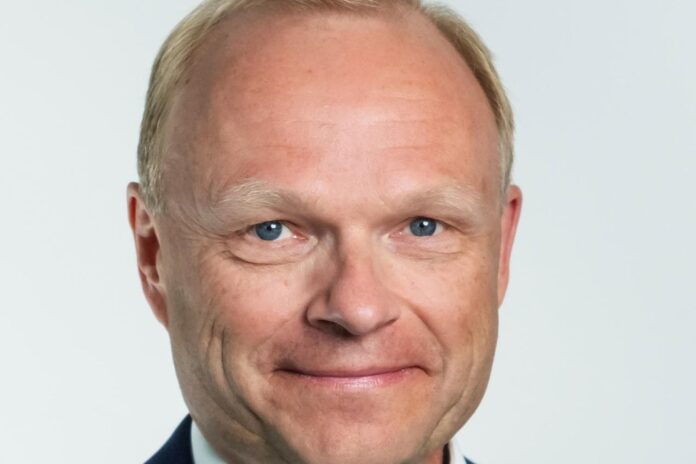Nokia signals optical intent with $2.3bn buy, as it also agrees to sell its Alcatel Submarine Networks to France for around €300m
Nokia has announced its intention to acquire optical specialist Infinera in a transaction valuing the company at $6.65 per share or an enterprise value of $2.3 billion. The deal will significantly ramp up Nokia’s optical core, data centre and metro propositions – the company is already a strong player in the optical access market.
The transaction represents a premium of 28% to Infinera’s share price at the close of 26 June 2024. At least 70% of the consideration will be paid in cash and Infinera’s shareholders can elect to receive up to 30% of the aggregate consideration in the form of Nokia ADSs. Nokia’s board has committed to increase and accelerate Nokia’s share buyback program to offset the dilution from the deal.
Nokia targets to achieve €200 million of net comparable operating profit synergies by 2027. This transaction along with the recently announced sale of Alcatel Submarine Networks will create a reshaped Network Infrastructure built on three pillars of Fixed Networks, IP Networks and Optical Networks. Nokia is targeting mid-single digit organic growth for the overall Network Infrastructure business and to improve its operating margin to mid-to-high teens level.
“We believe now is the right time to take a compelling inorganic step to further expand Nokia’s scale in optical networks, said Nokia president and CEO Pekka Lundmark. “The combined businesses have a strong strategic fit given their highly complementary customer, geographic and technology profiles. With the opportunity to deliver over 10% comparable EPS accretion, we believe this will create significant value for shareholders.”
“Network Infrastructure offers a unique portfolio across the fixed access, optical and IP networks domains built on leading technology innovation and a strong customer focus,” said Nokia president of network infrastructure Federico Guillén.
“This acquisition will further strengthen the optical pillar of our business, expand our growth opportunities across all our target customer segments and improve our operating margin,” he added.
“We believe Nokia is an excellent partner and together we will have greater scale and deeper resources to set the pace of innovation and address rapidly changing customer needs at a time when optics are more important than ever – across telecom networks, inter-data centre applications, and now inside the data centre,” said Infinera CEO David Heard. “This combination will further leverage our vertically integrated optical semiconductor technologies.”
Combined strength
The combination of the two units will increase the scale of Nokia’s Optical Networks business by 75%, enabling it to accelerate its product roadmap timeline and breadth.
The combined business will have significant in-house capabilities, including an expanded digital signal processor (DSP) development team, expertise across silicon photonics and indium phosphide-based semiconductor material sciences, and deeper competency in photonic integrated circuit (PIC) technology.
Infinera is also vertically integrated. It has a semiconductor fab in Sunnyvale, with component packaging occurring in Allentown, Pennsylvania, in addition to a former Transmode facility in Stockholm. For many of its products, Infinera designs and manufactures in-house photonic integrated circuits (PICs), ASIC chips and the hardware and software systems to extend network virtualisation into the optical layer.
In addition, Infinera has built a solid presence in the North America optical market, representing ~60% of its sales, which will improve Nokia’s optical scale in the region and complement Nokia’s strong positions in APAC, EMEA and Latin America.
The combination of these two businesses is also expected to accelerate Nokia’s strategic goal of diversifying its customer base and growing in enterprise. Internet content providers (ICP or webscale as Nokia typically calls this segment) make up over 30% of Infinera’s sales. With recent wins in line systems and optical pluggables, Infinera is well established in this fast-growing market.
Infinera has also recently been developing high-speed and low-power optical components for use in intra-data center (ICE-D) applications and which are particularly suited to AI workloads which can become a very attractive long-term growth opportunity.
ASN sale to French State
If you needed further proof that subsea cables were the new geopolitical battleground, Nokia signing a put option agreement with the French State to sell Alcatel Submarine Networks (ASN) for around €350 million is it.
The French State will acquire ASN through Agence des participations de l’Etat (APE) and Nokia will retain a 20% shareholding with board representation to ensure a smooth transition until targeted exit, at which point the French State would acquire Nokia’s remaining interest.
By divesting ASN, Nokia said it can focus its Network Infrastructure portfolio on growth opportunities in its core markets and further improve profitability of the Network Infrastructure business group – to Infinera and beyond!
The deal is expected to reduce the net sales of Network Infrastructure by approximately €1 billion but will increase its operating profit margin by 100 –150 basis points. The French State has made clear its full support for ASN’s management and strategy and has agreed to maintain investment in the ASN business and to support the further sustainable development of its vertically integrated technology offering.
The sale is expected to close at the end of 2024 or beginning of 2025, subject to formal consultation of ASN’s French Works Council and other customary closing conditions and regulatory approvals.
“ASN has been a standalone part of our Network Infrastructure business and through the divestment, Network Infrastructure will benefit from a streamlined portfolio with a focus on growth and strengthening its technology leadership,” said Lundmark. “ASN has gone through a significant transformation in recent years and has a strong market position.”



